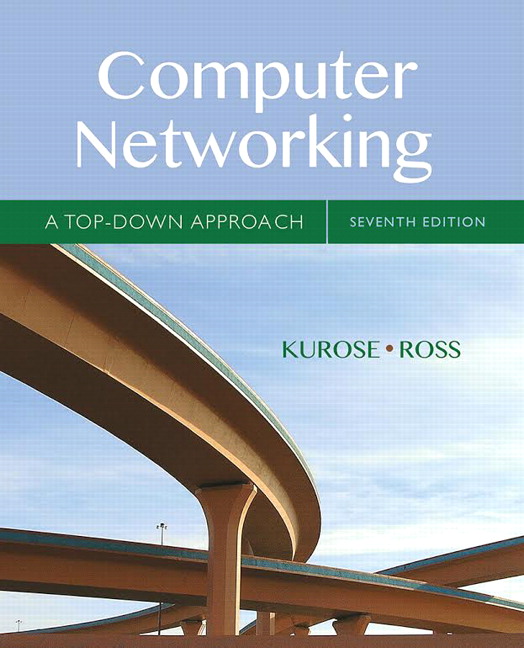Prerequisites
CSC 252Teaching Team
Instructor: Liudvikas Bukys Office: Wegmans 2105 Office Hours: Mon/Wed after class, Thursday 5:30-7PM, or by appointment Email: bukys@cs.rochester.edu TA: Fangzhou Liu Office:Wegmans 2203 Office Hrs: T 6pm - 8pm (we will contract if there is insufficient demand) Email: fliu14@ur.rochester.eduCourse description
This course explores the field of computer networking and communication, emphasizing network architecture and software design issues. We will discuss the basic performance and engineering trade-offs in the design and implementation of computer networks at every level. The idea is to learn not only what computer networks are and how they work today, but also why they are designed the way they are and how they are likely to evolve in the future. We will draw examples primarily from the Internet in this course.Topics covered
The course covers foundational material in the field of computer networks, including- Network architectures (protocols, layering, interfaces, encapsulation)
- Network technologies (e.g., Ethernet, FDDI, ATM, ISDN, wireless, HIPPI)
- Internetworking (addressing, routing, subnetting, autonomous systems)
- Resource allocation (fair queuing, virtual clocks, congestion avoidance)
- End-to-end issues (data representation, compression, authentication, encryption)
- Interprocess communication (datagrams, virtual circuits, request/reply, multicast, reliable broadcast, mobility)
- multimedia networking
- security in computer networks
- wireless and mobile networks
Course schedule
| Course | Faculty | Location | Days | Time |
|---|---|---|---|---|
| CSC 2/457 | Liudvikas Bukys | Dewey 2-110D | MW | 4:50 PM - 6:05 PM |
Required textbook

Computer Networking: A Top-Down Approach, 7/E (ISBN: 9780133594140) by James F. Kurose & Keith W. Ross (© Pearson Education, 2017).
You will perform significant network programming for this course. You can find many network programming resources on the web and even from Linux manual pages. However, if you would like to have an advanced network programming reference book (for C), a well-recommended one is "Stevens, Unix Network Programming, Volume I", 2nd edition (1998).
Workload
- In-class Quizzes
- Labs and Projects
- 1 Mid Term
- 1 Final
Grading policy
- Quiz (10% of the course grade)
- There will be 10+ quizzes
- Only the top 10 quizzes will be considered.
- Each quiz carries 1% of the course grade
- All the quizzes will be held during the lecture on Monday
- Exams (40% of the course grade)
- 1 midterm (15%)
- 1 final exam (25%)
Midterm on Wednesday, Oct 24, 2018
Final on Tuesday, December 18, 2018, 8:30 AM
- Labs/Assignments/Projects (45% of the course grade)
- Term Paper (Only for CSC/TCS 457)
- Students need to review one or more conference/journal papers, implement or add features to it.
- Students need to submit a report based on their results or findings.
- 20 addition points (making the total grade 120. The score will scaled to 100 for final letter grade)
- Class Participation
- 5 points will be awarded based on class participation.